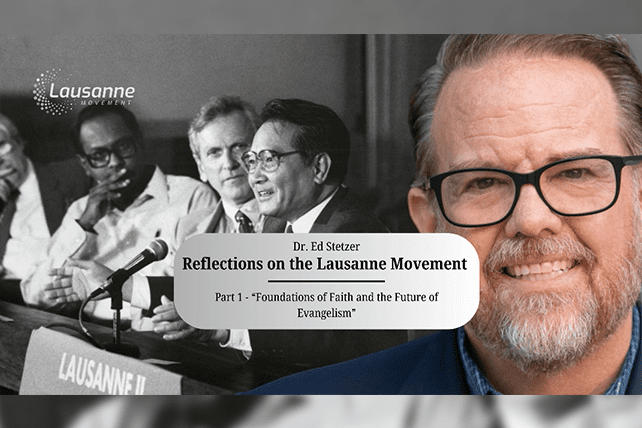Fifty years ago, evangelical leaders around the world recognized the need to think and work together for the mission God had given them. Meeting in Lausanne, Switzerland, in 1974, they laid out the priorities for Christian mission at the end of the 20th century.
This meeting birthed the Lausanne Movement.
In September in Seoul, Korea, I will join thousands of evangelical leaders from around the world on the 50th anniversary of the Lausanne Movement, for the fourth global Lausanne Congress (L4). We will gather because we believe the Lausanne Movement continues to play a critical role in mobilizing evangelical Christians for global missions.
As we prepare for our gathering, we should remember the foundational principles that have shaped the movement along with how these principles can guide the future of evangelism.
The Origins and Purpose of the Lausanne Movement
The Lausanne Movement was founded by two significant figures of 20th-century Christianity: Billy Graham and John Stott. Both men recognized the need for a global movement that would unite evangelical Christians around the task of world evangelization. At its core, the Lausanne Movement aims at mobilizing the church to show and share the love of Jesus across the globe.
The movement’s full name, the Lausanne Committee for World Evangelization, reflects its primary focus. This focus in part responded to earlier mission movements that had lost sight of their original purpose. Specifically, the “conciliar” missions movement was over 60 years old, and had drifted from its missionary purpose.
At the 1910 World Missionary Conference in Edinburgh, Scotland, world Christians (though primarily from Western nations) gathered with the ambitious goal of evangelizing the world within their generation. However well-intentioned, the movement made some critical mistakes. Most notably, the conference neglected to outline core and non-negotiable theological beliefs. I call this failure the “Edinburgh Error.” Soon the movement drifted.
By the time the International Missionary Council (IMC) was absorbed into the World Council of Churches (WCC), an emphasis on personal conversion and church planting had diminished significantly. Instead, the work focused on “larger evangelism”—meaning societal transformation—often at the expense of the proclamation of the gospel and the call to repent and believe.
This shift concerned Graham and Stott, and created the need for a movement that would maintain a clear theological foundation and a strong commitment to evangelism. The Lausanne Movement was born out of this concern that the global church should remain focused on the task of evangelizing the world.
The Need for Theological Clarity
The Edinburgh Error reminds us of the importance of a clear theological foundation. The early conciliar movement’s failure to lay such a foundation eventually led to a drift away from proclaiming the gospel so that men and women might respond in repentance and faith and be converted. The Lausanne Movement must avoid repeating this mistake.
Theological clarity is essential for maintaining the integrity of the church’s mission. The proclamation of the gospel must remain central to the church’s mission, and proclamation requires a clear understanding of what the gospel is and what it demands of us. Without this “theological gospel,” the church risks losing the unique calling it has in the world. Without the theological gospel, the church becomes little different than any other social institution.
Those at the upcoming Lausanne Congress will need to articulate clearly what we mean by “evangelism,” and how evangelism relates to the larger mission of the church. Specifically, we must clearly define the relationship between “proclamation” and “demonstration” or “sharing” and “showing” the love of Jesus. Likewise, we must address contemporary challenges such as secularism, religious pluralism, and the rise of the “nones” (those who claim no religious affiliation).

